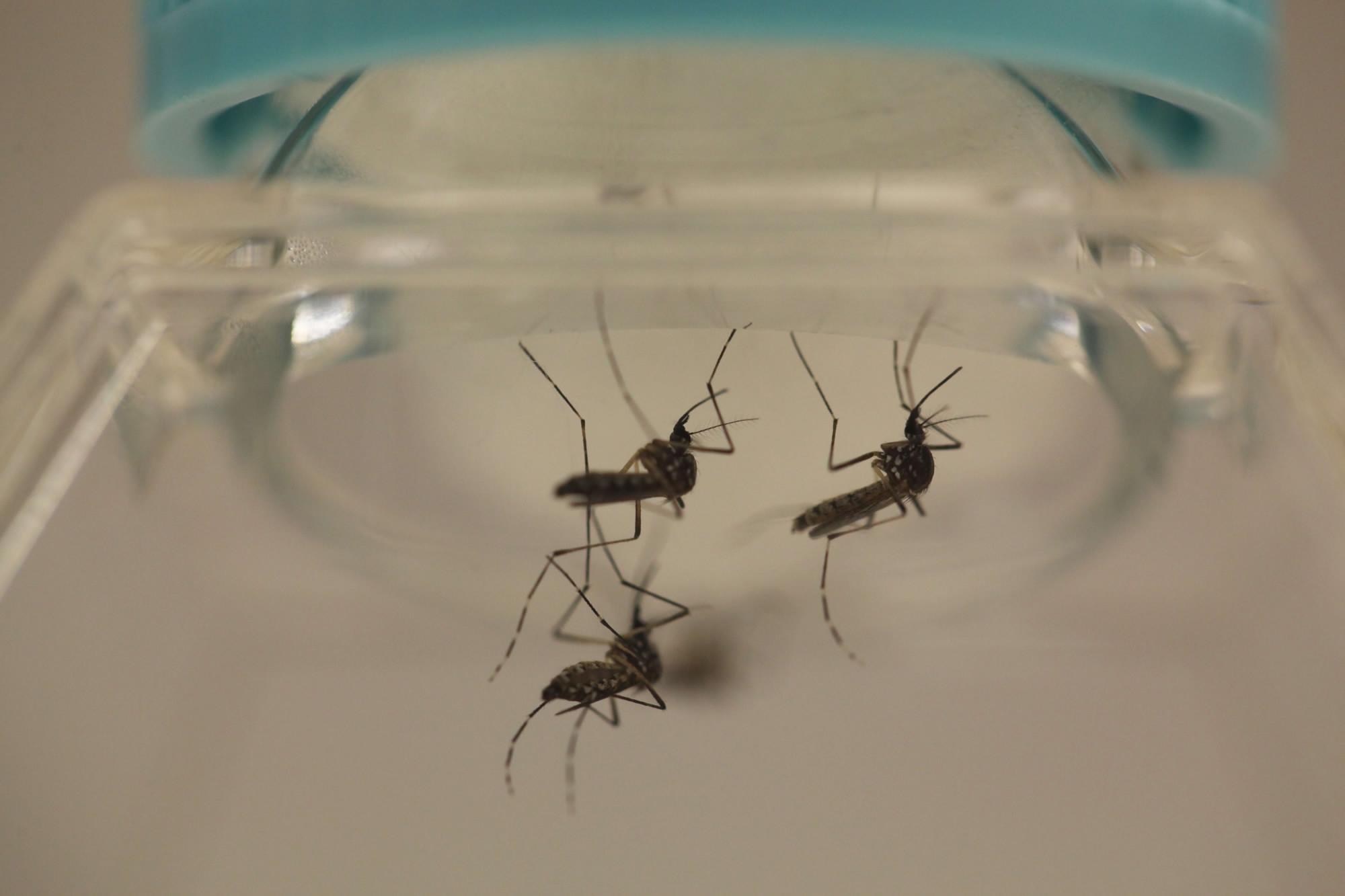US and Chinese scientists have identified a protein that may help fight against the Zika virus, and could even inhibit other viruses like Ebola and HIV, according to new research published by the scientific journal Immunity.
Researchers from China’s Suzhou Institute of Systems Medicine in cooperation with other institutions including the University of California, Los Angeles, found that mice infected with the Zika virus produced a protein named cholesterol-25-hydroxylase (CH25H).
The enzymatic product of this protein, 25-hydroxycholesterol (25HC), in turn “suppressed Zika virus infection” and reduced damage to the infected mouse embryo’s brain.
“Our findings highlight the protective role of CH25H during Zika virus infection and the potential use of 25HC as a natural antiviral agent to combat Zika virus infection and prevent Zika virus-associated outcomes, such as microcephaly,” the study said.

CFP Photo
Zika, which is transmitted by mosquitoes, made headlines in 2015 after a large number of women in Brazil who had been infected with the virus gave birth to babies with rare defects. Health authorities later reported a link between Zika and microcephaly, a condition that causes babies to be born with abnormally small heads.
At present, there is no effective treatment for a Zika infection and no effective vaccines have been successfully tested on humans through clinical trials.
But the new findings could change that.
"Theoretically, this could work on humans as well. We will start clinical tests to try to prove 25HC's effectiveness in humans," Cheng Genhong, general director of the Suzhou Institute of Systems Medicine, was quoted as saying by China’s Global Times newspaper.
The scientists also found that 25HC could be used to inhibit viruses like Ebola, HIV or others, according to media reports. More work will be required to apply the research results to the prevention and treatment of new infectious diseases, and provide an effective control program.









